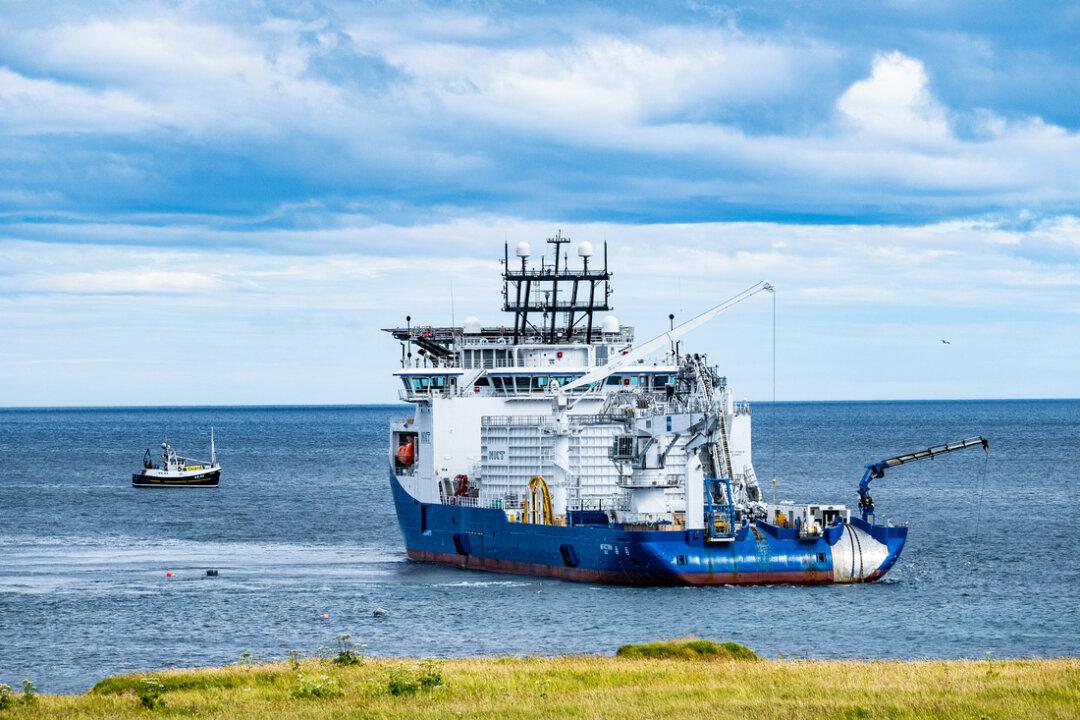A British defence analyst says the recent damage to an undersea telecommunications cable off the coast of Scotland is unlikely to have been carried out by the Russians, who are more likely to be fitting devices that would extract information.
Extra police officers were sent to the Shetland islands after an undersea telecommunications cable was damaged twice, leaving residents without phone and internet connections until it could be repaired a few days later.





